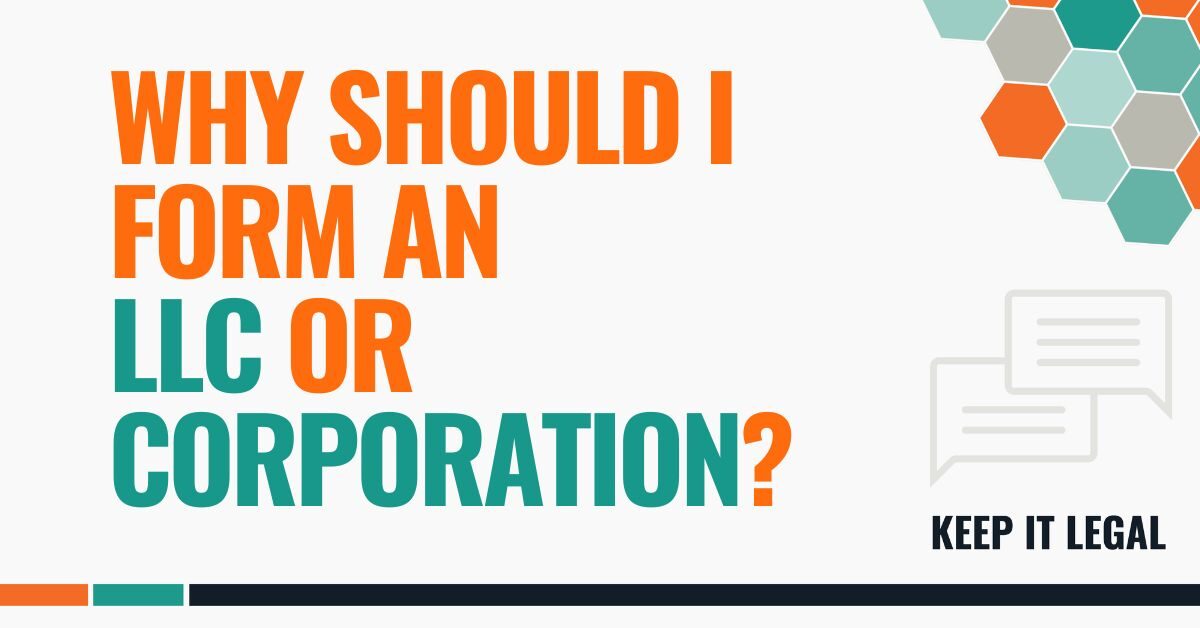Why Should I Form an LLC or Corporation?
People often ask why they should consider creating an LLC or corporation for their business. Of course, every business is different, but here are some general factors that U.S.-based entrepreneurs should consider.
The primary reason why businesses organize themselves as LLCs or corporations is to minimize liability.
If you are operating a business, and it’s not a corporation or an LLC, then you are either a sole proprietor (if it’s a one-person business) or a partnership (if more than one person is an owner). These are the default modes.
Sole proprietor or partnership status may be fine for your business, but one disadvantage is that the owners of these types of companies have unlimited personal liability. Meaning, if there is a lawsuit or claim against the business, the other side can sue you personally and potentially go after anything you personally own. You may want to seek advice from strategic legal counsel to advise about these issues.
LLCs and corporations are “limited liability entities”. This means that, in most cases, creditors of the company can sue the company itself, but the owners of the business can’t be sued personally for claims against the company. So in this case, if someone had reason to sue, they could attack the assets of the LLC or corporation but not your own personal assets or future earnings.
Of course, forming an LLC or corporation is not a “get out of jail free” card. You can still be personally liable for fraud, harassment, or other bad acts. And if the LLC or corporation isn’t properly maintained and in compliance, the “corporate shield” could be pierced and you could be personally liable for claims against the company. Forming a corporation or LLC should be considered a first step in the process of protecting your company and your assets.
There may also be tax advantages to structuring your business as an LLC or a corporation. Before forming an LLC or corporation, you should always speak with an accountant (CPA) who advises business owners. Your strategic legal counsel will work with a CPA to help come up with a plan for your business.
Another benefit of forming a corporation or LLC is that it creates a structure for you to sell your business or to bring in investors. As your business grows and evolves, these may be attractive options, and you will be better off having the structure set up beforehand, with a history of properly created documents and data.
Of course, this just scratches the surface of the pros and cons of LLCs and corporations. LLCs and corporations are similar, but not identical, so the choice of which form of business is right for you requires further discussion. As always, you should consult an attorney before making a decision as to the right structure for your company.
If you have questions about forming an LLC or corporation, feel free to contact me.


